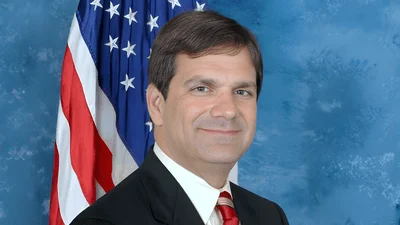Washington, D.C. -Last night, the White House responded to the Committee’s request for information regarding security clearance abuses by again refusing to produce any of the requested documents or witnesses. Instead, the White House sent yet another letter challenging Congress’ authority to conduct oversight of this area, while offering access to broad policy documents and a briefing on general procedures. Chairman Cummings issued the following statement relating to the White House’s latest response:
“The White House appears to be arguing that Congress has no authority to examine decisions by the Executive Branch that impact our national security-even when the President’s former National Security Advisor has pleaded guilty to lying about his contacts with foreign government officials. There is a key difference between a president who exercises his authority under the Constitution and a president who overrules career experts and his top advisors to benefit his family members and then conceals his actions from the American people. The White House’s argument defies the Constitutional separation of powers, decades of precedent before this Committee, and just plain common-sense. The White House security clearance system is broken, and it needs both congressional oversight and legislative reform. I will be consulting with Members of the Committee to determine our next steps."
Background
The President’s former Chief of Staff, General John Kelly, admitted that the White House has a systemic problem with adjudicating its security clearances, and public reports indicate that many problems continue to this today. These are areas of overwhelming and compelling national interest, and Congress plays a key role in conducting oversight and developing corrective legislation. Congress must fully understand the underlying problems to legislate effective reforms to the security clearance process-such as requiring greater disclosure when career experts are overruled, imposing more stringent penalties for lying on security clearance forms, and enhancing interagency coordination and information-sharing regarding security clearance holders. Generic “policy" discussions are no substitute for careful consideration of troubling lapses in our nation’s security clearance system.
* The Supreme Court has made clear that Congress plays a central and active role in national security policy under the Constitution.
* “National-security policy is the prerogative of the Congress and President." Ziglar v. Abbasi, 137 S. Ct. 1843, 1861 (2017).
* “The power of the Congress to conduct investigations is inherent in the legislative process. That power is broad. It encompasses inquiries concerning the administration of existing laws, as well as proposed or possibly needed statutes. It includes surveys of defects in our social, economic or political system for the purpose of enabling the Congress to remedy them. It comprehends probes into departments of the Federal Government to expose corruption, inefficiency or waste." Watkins v. U.S., 354 U.S. 178, 187 (1957).
* The White House incorrectly characterizes the Committee’s requests as “unprecedented" and “radically intrusive demands for the individual background files on its list of selective individuals."
* In 2018, the Oversight and Judiciary Committees obtained information as part of their investigation of Hillary Clinton’s emails, including a spreadsheet with the dates White House officials entered the security clearance process and were granted or denied clearances, a background investigation interview summary for Jared Kushner, and an internal readout of the background investigation of Sebastian Gorka.
* In 2018, in response to a request from then-Chairman Trey Gowdy, the Committee obtained information about four instances when the FBI provided derogatory information to the White House as part of Staff Secretary Robert Porter’s background investigation, including specific offices at the White House to which the FBI communicated this information.
* In 2017, in response to a bipartisan request from then-Chairman Jason Chaffetz and then-Ranking Member Cummings, the Committee obtained portions of former National Security Advisor Michael Flynn’s SF-86 application and FBI summaries of interviews conducted as part of his background investigation.
* In 2007, the Committee held a public hearing with White House Security Office Director James Knodell relating to whether White House security clearances were revoked following the leak of covert CIA agent Valerie Plame’s identity.
* In connection with the Plame investigation, the Committee also reviewed documents from the Justice Department relating to FBI interviews with senior White House officials, including Vice President Cheney’s Chief of Staff, Scooter Libby; White House Chief of Staff Andrew Card; White House Deputy Chief of Staff for Policy Karl Rove; National Security Advisor Condoleezza Rice; Deputy National Security Advisor Stephen Hadley; Counselor to the President Dan Bartlett; and White House Press Secretary Scott McClellan.
* In 1996, the Committee obtained the FBI background investigation file of former White House Travel Office Director Billy Dale and other documents about the White House’s background investigation process-including testimony from:
* White House Counsel Bernard Nussbaum;
* Assistant White House Counsel Bill Kennedy;
* Special Counsel to the President Jane Sherburne;
* White House Security Office Director Craig Livingstone; and
FBI Special Inquiry Unit Chief James Bourke.








